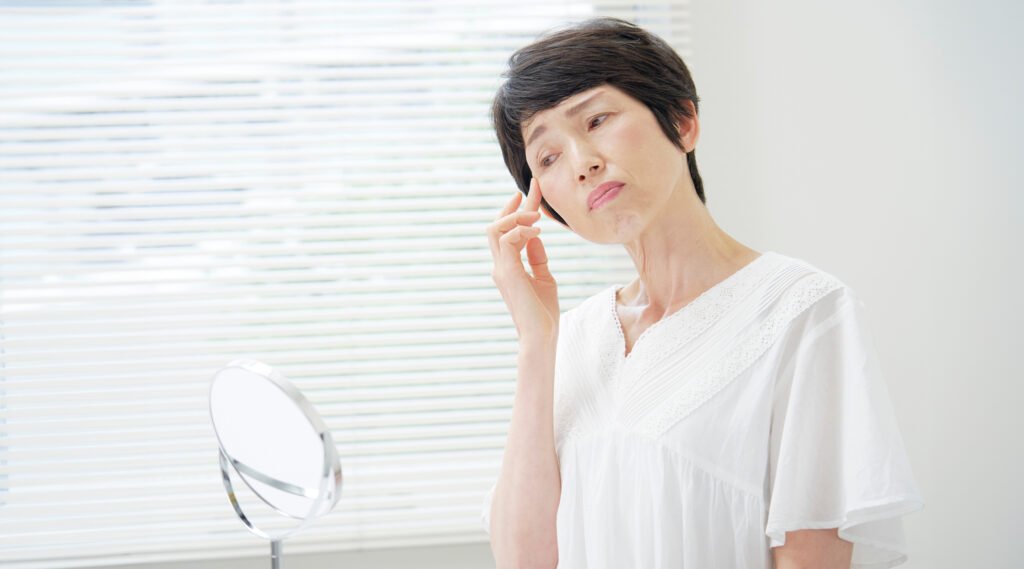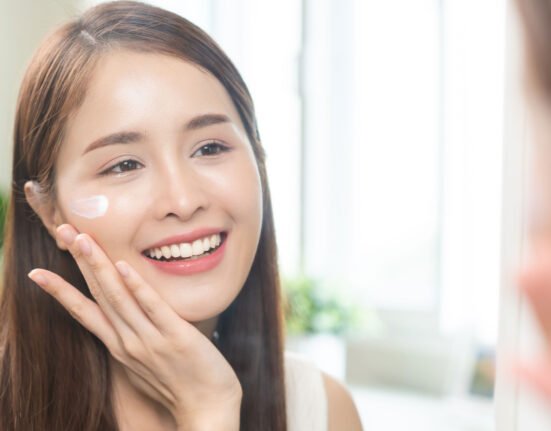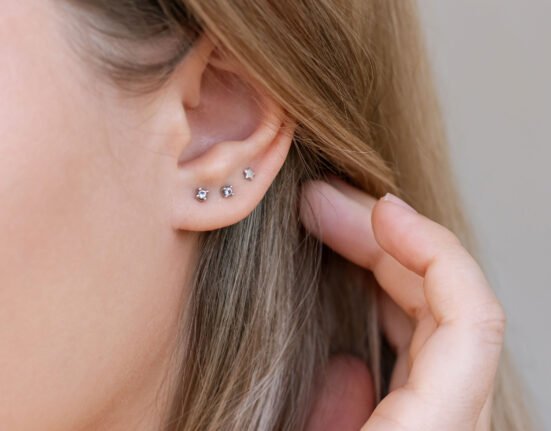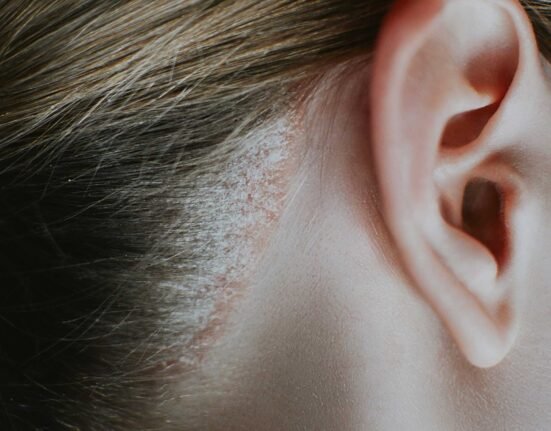Menopause is a natural phase in a woman’s life that marks the end of her reproductive years.
Medically, menopause is defined as the point when a woman has not had a menstrual period for 12 consecutive months, typically occurring between the ages of 45 and 55, with the average age being 51.
During this time, the body undergoes many changes, including noticeable effects on the skin.
These changes often reflect the hormonal shifts happening within the body.
What Happens to the Skin During Menopause?

Hormonal changes, particularly the decline in estrogen levels, play a significant role in skin health and appearance.
Some common effects of menopause on the skin include:
- increased dryness and itchiness;
- wrinkles and sagging skin;
- redness or flushing due to hot flashes;
- hormonal acne;
- slower wound healing;
- thinning and shedding hair;
- enlarged pores.
The decline in estrogen disrupts collagen and sebum (natural oil) production, while also weakening the skin’s protective barrier.
As a result, the skin becomes more prone to moisture loss, sensitivity, and premature aging.
Collagen Loss: Why Skin Becomes Saggy and Wrinkled
According to the American Academy of Dermatology:
- Collagen production drops by 30% during the first five years of menopause.
- It is expected to decrease by approximately 2% each year over the next 20 years.
Collagen is crucial for maintaining the skin’s structure, firmness, and elasticity. When collagen levels fall:
- Skin begins to sag
- Wrinkles become more prominent
- Cheeks may appear sunken
- Under-eye bags become more noticeable
- Pores look larger
- The tip of the nose may droop
Why Does Acne Reappear?
As estrogen levels decline, androgens (male hormones, such as testosterone) become more dominant.
This hormonal imbalance can trigger:
- Excess oil production
- Clogged pores
- Hormonal acne, especially around the chin and jawline
While these changes can’t be avoided entirely, they can be managed with the proper skincare routine.
How to Care for Menopausal Skin
1. Wear Sunscreen Daily
UV rays are a leading cause of skin aging. Apply a broad-spectrum sunscreen with an SPF of at least 30 every day, even on cloudy days.
2. Manage Hormonal Acne
Use cleansers or topical products containing:
- Salicylic acid: helps unclog pores and reduce oil
- Benzoyl peroxide kills acne-causing bacteria
3. Moisturize Regularly
Your skin may feel drier than usual. Choose moisturizers with ingredients like:
- Hyaluronic acid: draws water into the skin
- Ceramides and glycerin: help strengthen the skin barrier
Apply moisturizer while your skin is still damp, and consider adding a facial oil if needed for extra hydration.
4. Prioritize Quality Sleep
Adequate rest helps the skin repair and regenerate more effectively.
Additional Care Options to Consider
- Use anti-aging products with retinol or peptides to boost skin cell renewal.
- Consider professional treatments, such as laser therapy, microneedling, or hormone therapy, if skin changes become particularly bothersome.
- Maintain a healthy lifestyle by getting enough sleep, exercising regularly, and consuming foods rich in antioxidants and omega-3 fatty acids to support skin health from the inside out.
Menopause Is a Natural Transition, Not the End of Healthy Skin
Although menopause brings many changes, including those affecting your skin, it doesn’t mean your skin can’t look and feel healthy.
You may notice more dryness, sagging, or even breakouts, but with the proper care, these changes can be slowed and improved.
Menopause isn’t the end of beautiful skin. It’s a new chapter.
It’s a chance to adopt a gentler, more mindful skincare routine tailored to your evolving needs.
References
American Academy of Dermatology. Accessed in 2025. Caring for your skin in menopause.
Healthline. Accessed in 2025. Understanding How Your Skin Changes During Menopause.
Northwestern. Accessed in 2025. Menopause and Your Skin.














Leave feedback about this